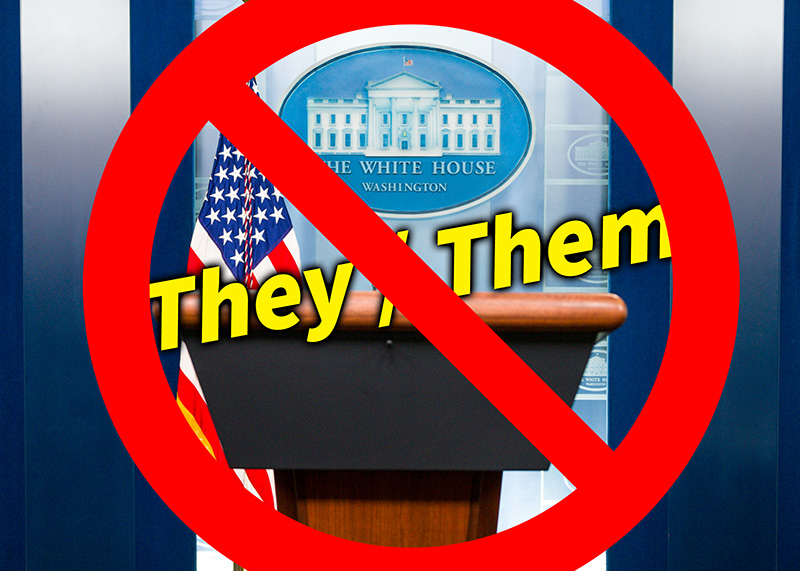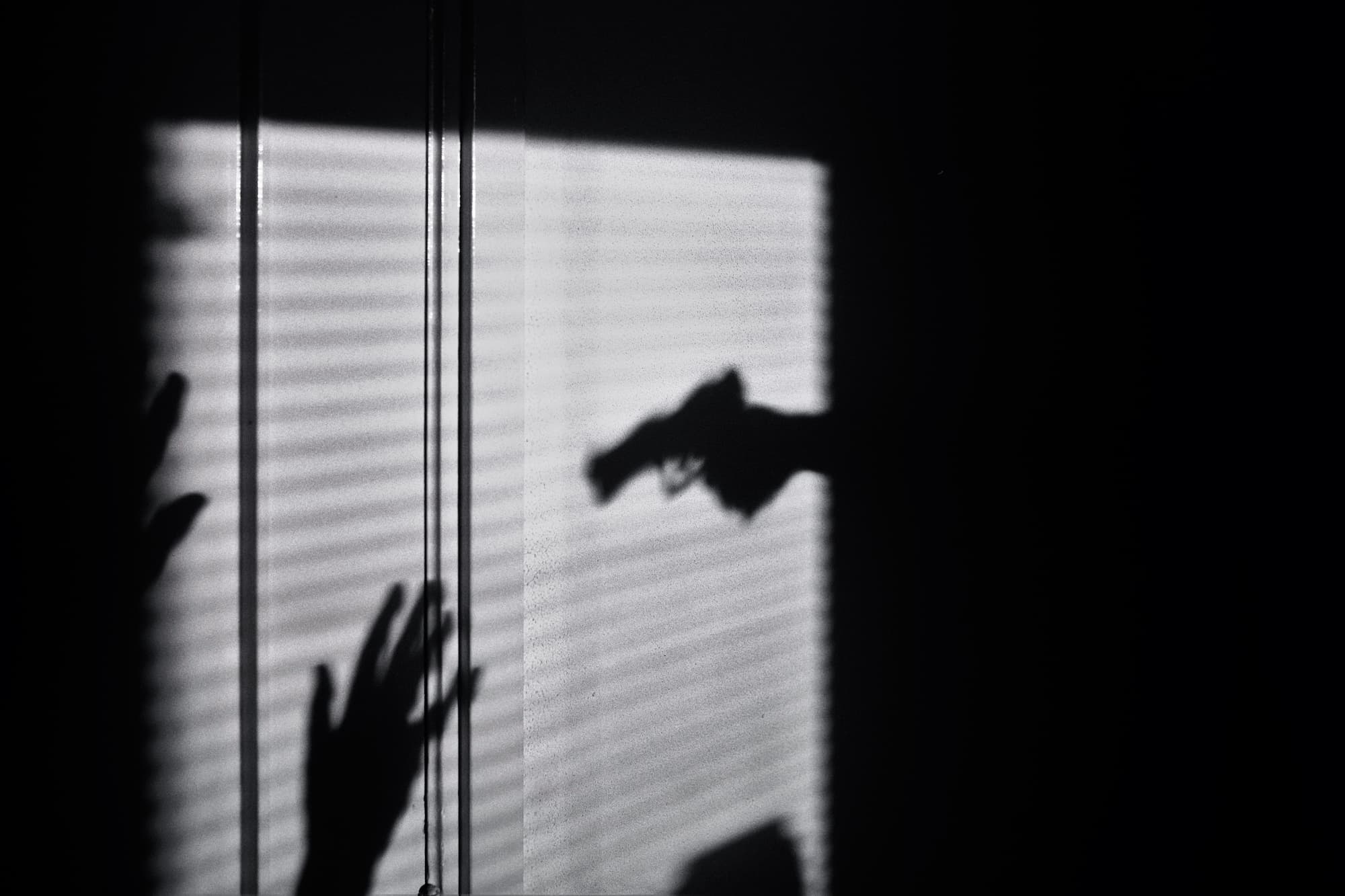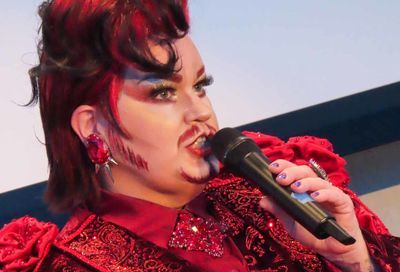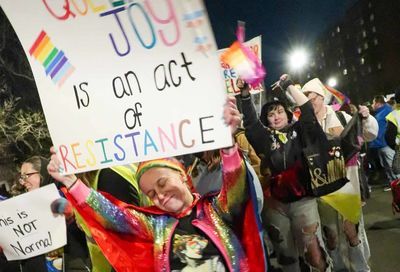White House blasts South Dakota governor over trans depression comments
Gov. Kristi Noem said she feels "sad" to learn that nearly 9 in 10 LGBTQ South Dakotans feel depressed.

The White House blasted South Dakota Gov. Kristi Noem (R) over a response to a reporter’s question about the rate of depression among LGBTQ people in her state.
During a news conference last Thursday, a reporter asked Noem about a statistic showing that close to 9 in 10 LGBTQ South Dakotans have reported experiencing feelings of depression, the highest rate for any state in the country.
That statistic was pulled from a recent national study by HelpAdvisor, which found that nearly 2 out of every 3 LGBTQ individuals experienced feelings of depression in the past two weeks, a rate that is 21% higher than individuals who are not part of the LGBTQ community. The study cited also found that, nationally, more than 1 in 5 LGBTQ people experience feelings of depression “nearly every day.”
The reporter asked Noem why she thought South Dakota boasted the highest rate of depression among LGBTQ residents, to which the governor responded: “I don’t know. That makes me sad, and we should figure it out.”
White House Deputy Press Secretary Karine Jean-Pierre, who is a lesbian, shared the clip of Noem’s exchange with the reporters, tweeting: “Here’s a start for you, Governor. 1. Don’t advance policies that attack trans youth, 2. Don’t fund ads attacking LGBT youth, 3. support @POTUS’ agenda to enhance support for youth mental health needs, with funding made available through the American Rescue Plan.”
Here’s a start for you, Governor. 1. Don’t advance policies that attack trans youth, 2. Don’t fund ads attacking LGBT youth, 3. support @POTUS’ agenda to enhance support for youth mental health needs, with funding made available through the American Rescue Plan. https://t.co/FQLV0pYIsk
— Karine Jean-Pierre (@KJP46) February 18, 2022
Some of Noem’s defenders have argued that it is not only so-called “red states” with anti-LGBTQ laws where rates of depression are high, noting that 84% of LGBTQ people in politically-liberal Vermont (the second-highest rate in the country) experience depression, as do more than 72% of people in Wisconsin and Washington State, both of which have pro-LGBTQ laws and protections in place and yet round out the top 10 states in terms of LGBTQ depression rates.
Noem garnered national attention earlier this month after she signed a bill into law barring transgender athletes from competing on sports teams matching their gender identity. South Dakota is the tenth such state to institute such a ban, and the first state to do so this calendar year.
Conservatives have touted the measure as necessary to preserve the “integrity” of women’s sports by allowing cisgender females to win championships, awards, medals, qualify for higher-level competitions or tournaments, and potentially even earn athletic scholarships to college. Noem’s chief of staff even came under fire after he compared allowing trans athletes to compete according to their gender identity to terrorism.
“This bill is about fairness,” Noem said at the time she signed the bill into law. “It’s about allowing biological females in their sex to compete fairly in a level playing field that gives them opportunities for success.”
Last year, Noem issued two executive orders barring transgender athletes from competing in single-sex sports that do not match their assigned sex at birth after lawmakers refused to introduce amendments to a bill she vetoed over concerns that its provisions would leave the state vulnerable to lawsuits and potential backlash from the NCAA, the governing body in collegiate athletics. For that veto, Noem was pilloried by conservative pundits for “caving” to business interests, leaving her scrambling to recoup her reputation as a fierce social conservative.
Prior to signing the ban into effect this year, Noem, who is rumored to have presidential ambitions, released an advertisement touting her efforts to ban transgender females from competing against cisgender female students.
Critics of the law argue that it is unconstitutional, and may lead to lawsuits against the state, just as similar measures in Idaho, Florida, and West Virginia have been challenged in court. They also argue it leads to greater depression and feelings of isolation among transgender youth. According to a survey, conducted earlier this year by The Trevor Project, more than 85% of transgender and nonbinary youth in the United States said reports of restrictions on transgender students, including proposed sport bans, have negatively impacted their mental health.
Support Metro Weekly’s Journalism
These are challenging times for news organizations. And yet it’s crucial we stay active and provide vital resources and information to both our local readers and the world. So won’t you please take a moment and consider supporting Metro Weekly with a membership? For as little as $5 a month, you can help ensure Metro Weekly magazine and MetroWeekly.com remain free, viable resources as we provide the best, most diverse, culturally-resonant LGBTQ coverage in both the D.C. region and around the world. Memberships come with exclusive perks and discounts, your own personal digital delivery of each week’s magazine (and an archive), access to our Member's Lounge when it launches this fall, and exclusive members-only items like Metro Weekly Membership Mugs and Tote Bags! Check out all our membership levels here and please join us today!























You must be logged in to post a comment.